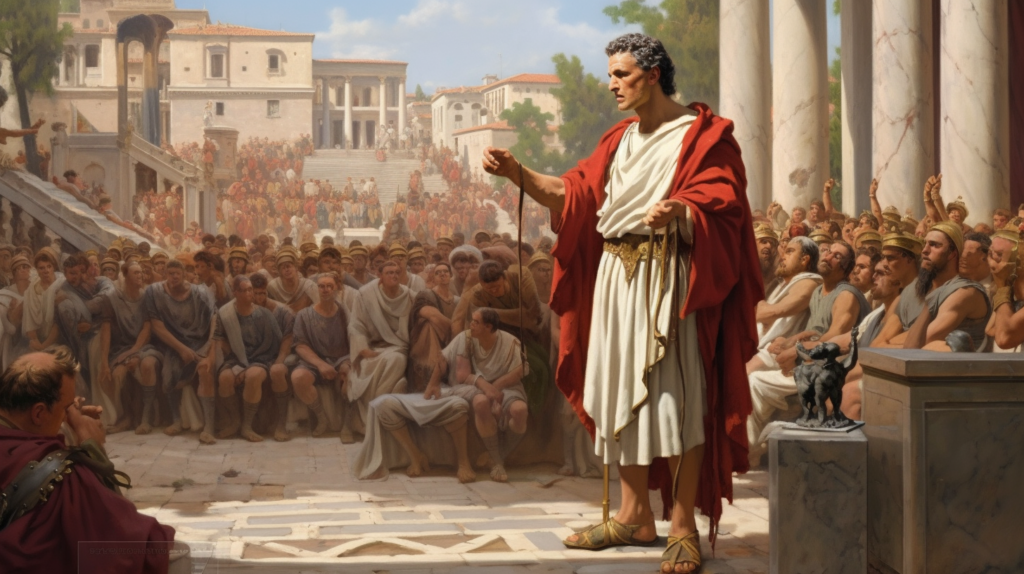“Pluck the day, put very little trust in tomorrow.”
If he spoke in English, those would have been the words of the Roman poet Horace (65 BCE — 8 BCE). It’s a message Western society needs to hear now more than ever, but first, we must restore it’s original meaning. His poetry reflects the philosophical and ethical ideas of his time, with a heavy dose of Greek Epicurean and Stoic schools of thought. It’s from Horace that Western society coined the phrase “Carpe diem,” yet we have misinterpreted its meaning and reengineered it to fit our modern Western culture.
Yes, you heard me right. The phrase “carpe diem,” which has been popularized as “seize the day,” is more accurately translated as “pluck the day,” akin to the gentle gathering of ripening fruits or flowers. As pointed out by Latin scholar Maria S. Marsilio, this revelation paints a picture far removed from the aggressive, forceful connotation of “seizing” the day.
But why does this matter? Why should we care about the difference between “seizing” and “plucking” the day? Well, it’s all about the metaphors we use and how they shape our understanding of the world.
Let’s go a little bit deeper.
Horace’s most famous passages, often associated with the concept of carpe diem, is found in Odes 1.11:
“Carpe diem, quam minimum credula postero,” which can be translated as: “Pluck the day, put very little trust in tomorrow.”

The phrase “carpe diem” was catapulted into mainstream culture by the influential movie Dead Poets Society. The film has inspired countless people to live their lives with a sense of urgency, to strike while the iron is hot, and to seize the day. But in our rush to seize, have we lost sight of the original, more nuanced meaning?
Consider the difference in imagery. “Plucking the day” evokes a sense of gentle enjoyment, a deep appreciation for the present moment. It’s a far cry from the Hollywood phrasing of “seize the day,” which compels us to snatch at time, to consume it before it’s gone.
This shift in interpretation reveals our hidden cultural values. We’ve adopted a mindset of aggressive action, a “work till you drop” mentality that mirrors the industrialism of our modern world. We’ve been co-opted by advertisers who sell us the idea that happiness can be achieved through instant gratification, that we should “Just Do It” by buying products.
Australian philosopher Roman Krznaric, author of Carpe Diem Regained, argues that this “hijacking” of carpe diem is an existential crime of the century. He suggests that the philosophy has come to mean something else, almost the antithesis of what Horace’s words actually meant.
But let’s step back for a moment.
Imagine you’re at a bustling marketplace. You see a vendor with a basket full of ripe, juicy apples. You could rush over, push your way through the crowd, and snatch an apple from the basket. Or, you could approach the vendor, exchange a few pleasant words, and gently pick an apple from the basket. Both actions result in you getting an apple, but the experience, the journey, is vastly different.
This is the difference between “seizing” and “plucking” the day.
Our language is filled with metaphors that shape our understanding of the world. We talk about “running out of time,” “losing time,” “wasting time,” and “spending time,” all of which suggests that time is a valuable and limited resource. But time is not a commodity. It’s not something that can be seized or spent.
I’ve spent my life translating concepts with analogies and metaphors. They are deeply embedded in our culture. They reflect our values and shape our actions. When we talk about “seizing the day,” we’re conforming to a cultural norm that values aggression and urgency. But what if we chose to “pluck the day” instead? What if we decided to savor each moment, to appreciate the beauty of the present?
“Carpe diem” is a call to pluck the day, to savor each moment as if it were a ripe, fragrant rose.
We do this by shifting our mindset.
We let go of the notion that time is a commodity, that it’s something to be seized and consumed. Instead, we need to see time as a gift, something to be savored and appreciated.
Be present in each moment and truly experience it.
Let go of distractions, of the constant pull of the past and the future.
Appreciate each moment for what it is, to be thankful for the gift of time. This means paying attention to the challenges and difficulties of life. Acknowledging them, facing them, and then focusing on the positive, on the beauty of the present moment.
So, the next time you find yourself rushing through your day, trying to seize every moment, remember the garden. Remember the gentle act of plucking a ripe, fragrant rose from its stem. Remember that “carpe diem” is not a call to aggression but a call to appreciation.

